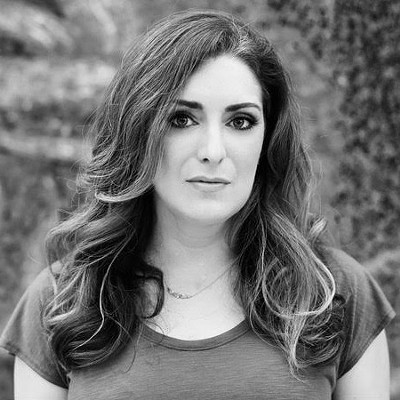Texans dominated in the Summer Olympics this month. If Texas were its own country it would have ranked third in gold medals, with 42 total metals, 26 of them gold. And even though the closing ceremony took place on Aug. 21, the events in Rio de Janeiro aren't truly over yet.
In fact, for many of Texas' fiercest athletes, the games are just beginning. The Lone Star State will be well-represented in the Paralympic Games, a multi-sport event participated in by athletes with a range of disabilities, starting in Rio on Sept. 7 and continuing through the 18th. Here are three athletes from Dallas to watch.
Paralympian: Darlene Hunter
Sport: wheelchair basketball
Lives in: Arlington
When Darlene Hunter was 4 years old, she was run over by a road grader. An emergency surgery following the accident left her a complete T10 paraplegic, meaning she is paralyzed from the belly button down. But don't feel sorry for her. Darlene Hunter is a badass.
Hunter, 34, started road racing at age 7, eventually earning a track scholarship to the University of Arizona. In college, she competed for the school’s adapted track team and co-founded the university's women's wheelchair basketball team. She moved to Arlington in 2004 to attend graduate school at the University of Texas at Arlington.
“When I came here, they called Dallas the mecca of wheelchair basketball,” she says.
Her longtime boyfriend, Jason Nelms (“We’ve been together forever,” she says) is a three-time Paralympian (in 2004, 2008 and 2012) and head coach of the Lady Movin’ Mavs women's wheelchair basketball team at UT Arlington.
The United States lags far behind other countries in media coverage and general awareness of the Paralympics. She says during the 2012 games in London, she and her teammates were treated like celebrities.
“We were on the cover of tabloids for the Paralympics — magazines, newspaper articles — everywhere you looked," she says. "In the United States, you walk in and say, 'Hey I just got a gold medal at Parapan,' and they’re like, 'What are you talking about? What do you mean?'”
Hunter has no regrets about the way her life has gone. “I don’t think if I was an able-bodied person with nothing 'wrong' with me — quote unquote, nothing ‘wrong’ — that I would have ever been able to achieve this. I have a PhD, I’m living on my own, I have two dogs (Tyson, an English bulldog, and Belle, a mutt). Life is awesome.”
Paralympian: Pam Fontaine
Sport: table tennis
Lives in: Highland Village
The world collectively gasped when they learned that gymnast Oksana Chusovitina would be competing in the Rio Olympics at the age of 41. But Pamela Fontaine, 51, has a decade on Chusovitina and is about to compete in her fifth Paralympics.
A self-described “scrappy, hardworking player,” Highland Village resident Fontaine started playing table tennis in college. She lost in the final round of a national competition. “I'm very competitive and don't like to lose,” she says. “If I would have won the event I probably would have never taken up the sport.”
Fontaine was a high school basketball player in Ohio before becoming paralyzed in a car accident at age 16. At that time, seat belt laws had not yet taken effect, and she was sent flying through the windshield from the passenger’s seat. She broke her back (among other injuries), but a month after leaving the hospital, she was attending wheelchair basketball practice.
“When I went out there [to practice], all the guys were Vietnam vets, just these huge boys shooting from three-point land, and here I am this little girl right out of the hospital who can’t make a layup,” she says. Her coaches told her to get stronger, get used to her injury and try other sports.
She excelled immediately at ping pong. Fontaine won a silver medal in the 1984 Paralympics before retiring to pursue wheelchair basketball. She returned to the sport in 2007.
Things have changed drastically for Paralympic athletes since she entered the scene.
"You used to have to pay your own way. If you couldn't afford it, you couldn't go," Fontaine, an adjunct professor of kinesiology at Texas Wesleyan University, says. "The uniforms were so ugly nobody wanted them."
“Some people think, 'Oh, she’s in a wheelchair.' They feel sorry for you. But hey, let's go hoop it up and then we'll see how sorry you feel.”
That table tennis is such a male-dominated sport in the United States is incentive enough for her to keep playing. “If I quit, there are very few other girls to take my spot," she says. "My spot would be gone.”
Have we mentioned she’s really, really good?
“If I retire, if I quit, then what? We wouldn’t have any other women playing at this level for a long time. Ping pong takes a long time to get good. I’m carrying the torch.”
Paralympian: Deja Young
Sport: track and field
Lives in: Wichita, Kansas
Mesquite native Deja Young is an ebullient 20-year-old. When she talks about Whataburger, her eyes sparkle and she gets an extra pep in her voice.
Young, a junior at Wichita State University in Kansas, where she studies social work, was born with a dislocated right shoulder. It makes her running style unusual: Her right arm moves across her body, a deviation from conventional running form, but her left arm stays straight, moving back and forth. She was a standout senior on Horn High School’s track team, but most college coaches were unwilling to take her seriously as a viable athletic prospect.
“They said, 'You can walk on but you won’t be scholarship worthy.' They said if they couldn’t fix my form it wasn’t going to work out. It was pretty brutal.”
Young credits that experience, along with the fiercely competitive atmosphere of sports at Texas high schools, with building her thick skin.
“Track in Texas is way tougher than in other states," she says. "Dallas alone creates a lot of great athletes. I’m tougher than I would be if I had grown up anywhere else.”
[
{
"name": "Air - MediumRectangle - Inline Content - Mobile Display Size",
"component": "18855504",
"insertPoint": "2",
"requiredCountToDisplay": "2"
},{
"name": "Editor Picks",
"component": "17105533",
"insertPoint": "4",
"requiredCountToDisplay": "1"
},{
"name": "Inline Links",
"component": "18349797",
"insertPoint": "8th",
"startingPoint": 8,
"requiredCountToDisplay": "7",
"maxInsertions": 25
},{
"name": "Air - MediumRectangle - Combo - Inline Content",
"component": "17105532",
"insertPoint": "8th",
"startingPoint": 8,
"requiredCountToDisplay": "7",
"maxInsertions": 25
},{
"name": "Inline Links",
"component": "18349797",
"insertPoint": "8th",
"startingPoint": 12,
"requiredCountToDisplay": "11",
"maxInsertions": 25
},{
"name": "Air - Leaderboard Tower - Combo - Inline Content",
"component": "17105535",
"insertPoint": "8th",
"startingPoint": 12,
"requiredCountToDisplay": "11",
"maxInsertions": 25
}
]











